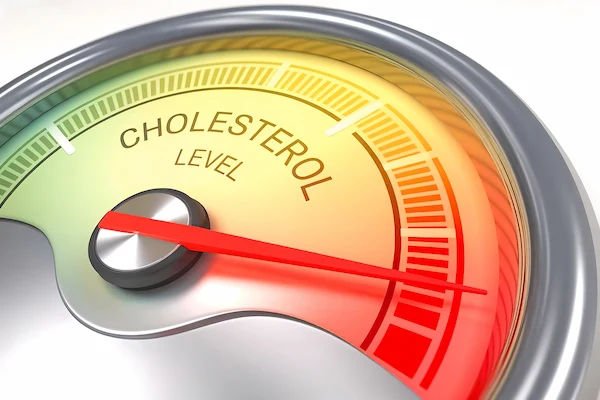- Male
- 33 Years
- 20/02/2025
I've been monitoring my heart rate for the past year, and it's consistently around 110 beats per minute every day. Is this something I should be concerned about? Should I consider visiting a doctor to get it checked out?
Answered by 1 Apollo Doctors
A heart rate of 110 beats per minute may be considered high, especially if it is consistently elevated. It is recommended to consult with a healthcare professional for further evaluation. In the meantime, you can try to reduce your heart rate by practicing relaxation techniques, such as deep breathing exercises. If the high heart rate persists, a doctor may prescribe medication such as Metoprolol at a starting dose of 25mg once daily to help lower your heart rate.
Dr. Anshul Suggests...
Consult a Cardiologist
Answered 04/07/2025
0
0

Ask Apollo
AI powered Health Chatbot
Your consistently elevated heart rate of around 110 beats per minute, which is above the normal resting range (typically 60-100 bpm), is something to pay attention to.
-
Possible Causes: a. Stress, anxiety, dehydration, caffeine intake b. Thyroid issues, anemia, or an underlying heart condition
-
When to See a Doctor:
- It is important to consult a healthcare professional to evaluate your heart rate, especially since it has been consistently elevated for a year.
- They may perform tests like an ECG, blood work, or a Holter monitor to understand the cause.
-
What You Can Do Now:
- Keep a record of your heart rate readings along with any symptoms like dizziness, chest pain, or shortness of breath.
- Avoid stimulants like caffeine and ensure proper hydration.
Visiting a doctor will help identify if this elevated heart rate is benign or requires treatment. Early evaluation is the best way to ensure your heart health and peace of mind.
Answered 10/09/2025
0
0

More Cardiology Health Queries
View allI'm curious if it's common to have mild mitral regurgitation. Can I live a normal life with it, or do I need to limit activities like exercise or long travel?
Mild mitral regurgitation usually does not cause any symptoms and does not typically require any restrictions on exercise or travel. You can continue to live a normal life without any limitations. However, it is important to follow up with your doctor regularly to monitor the condition and ensure it does not worsen.
Answered by 1 Apollo Doctors
I'm experiencing something strange after starting my TB medication. My heart beats really fast while I'm sleeping and even after I wake up. I don't have shortness of breath, just a persistent headache, and it's really bothering me because it's affecting my sleep. There's no cough either, just this constant headache and rapid heartbeat throughout the day. My blood pressure is around 13070. What could be causing these symptoms?
Continue same treatment as advised by the physician.
Answered by 1 Apollo Doctors
I've been feeling this pain in the left side of my chest for a few days now, especially when I take a deep breath. Its not super intense, but it's noticeable. Should I be worried about this, or is it something that might resolve on its own? What could be causing it?
consult doctor
Answered by 1 Apollo Doctors
Disclaimer: Answers on Apollo 247 are not intended to replace your doctor advice. Always seek help of a professional doctor in case of an medical emergency or ailment.

 Should I track my heart rate during exercise?
Should I track my heart rate during exercise? 

_3.webp)

